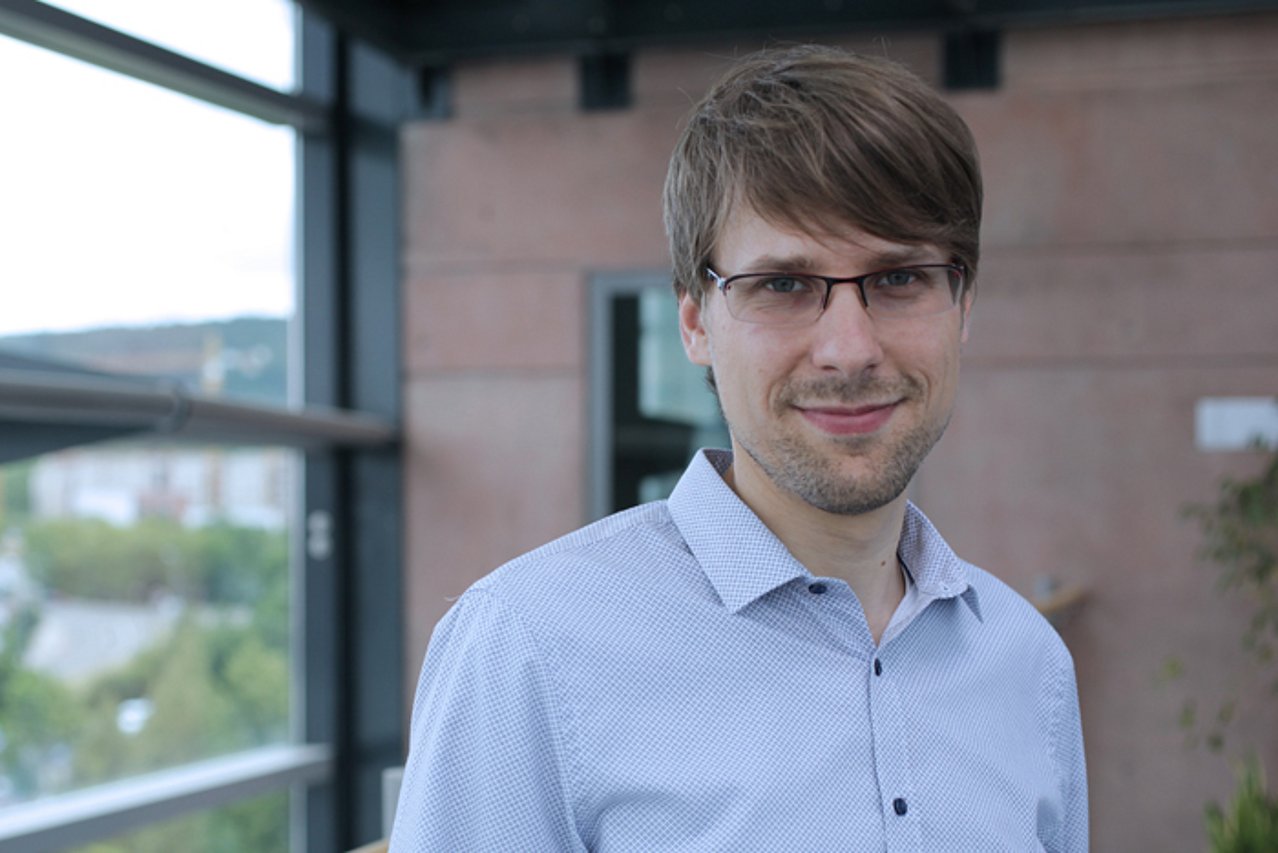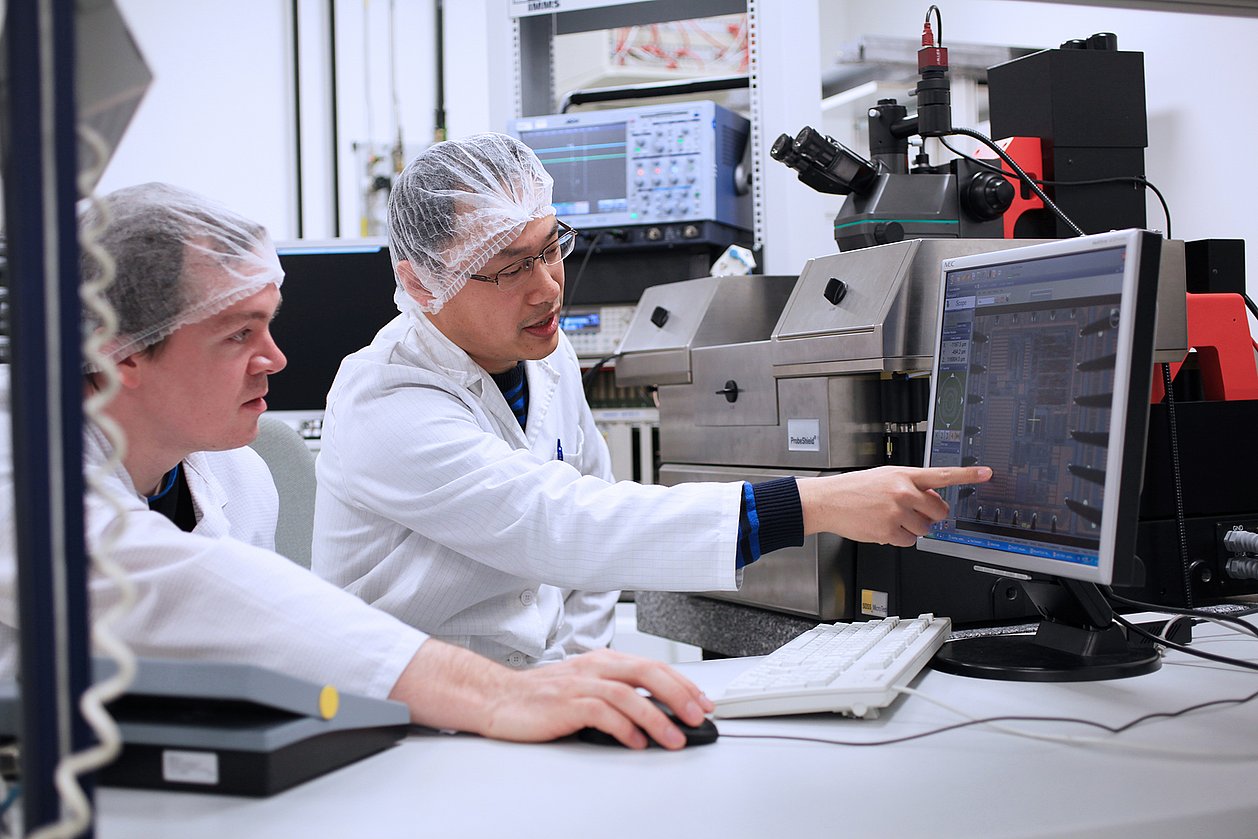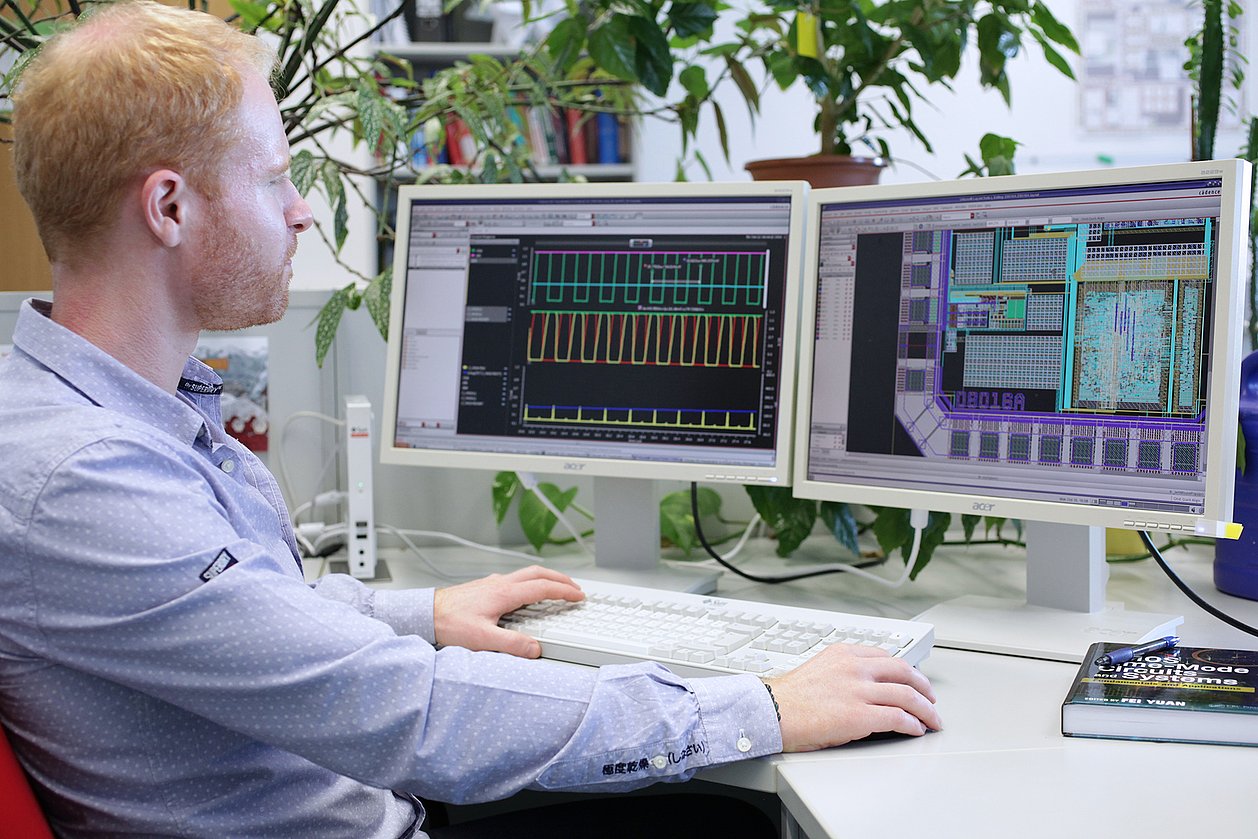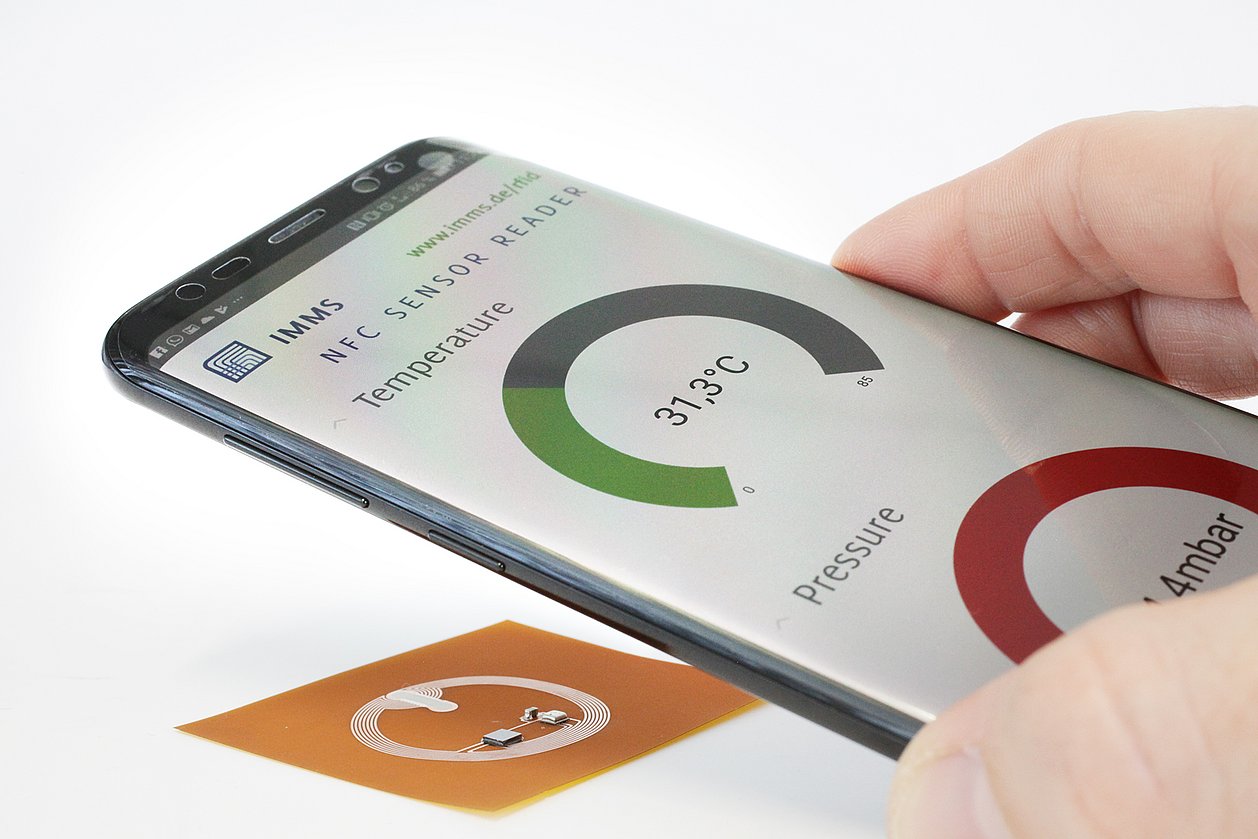Core topic ULP sensor systems
The Internet of Things has so far been difficult or impossible to harness for many applications due to a lack of suitable energy supply. Rotating machine parts, for example, cannot usually be supplied with wire-based energy, which is why batteries with limited energy resources are used there. To still be able to connect and monitor these parts over long periods of time, energy-efficient sensor systems are needed.
More challenging are applications where batteries are not changeable, such as moulded or widely distributed sensors in road construction or agriculture, and sensors in hazardous areas such as parts under high voltage. Even more demanding are solutions to be developed without batteries for ecological or cost reasons. There, energy-autonomous passive sensor systems are necessary, which are supplied with energy via RFID, for example, as in smart food packaging or digital rapid tests.
But the sensors available for the development of new IoT applications are mostly not energy-optimised and need energy which does not contribute to the function, such as constantly running clock generators or inefficient interfaces.
We research and develop ultra-low-power (ULP) sensor systems that require very little power and have integrated energy management components.
In addition to classical ULP circuit techniques such as clock gating, we are exploring the use of energy storage and converters as well as central control of the energy flow. We develop models as well as generic and automated modelling methods for the energy flow in ULP sensor systems.
Contact
Contact
Eric Schäfer, M. Sc.
Head of Microelectronics / Branch Office Erfurt
eric.schaefer(at)imms.de+49 (0) 361 663 25 35
Eric Schäfer and his team research Integrated sensor systems, especially CMOS-based biosensors, ULP sensor systems and AI-based design and test automation. The results are being incorporated into research on the lead applications Sensor systems for in-vitro diagnostics and RFID sensor technology. It will assist you with services for the development of Integrated circuits and with IC design methods.
Related content
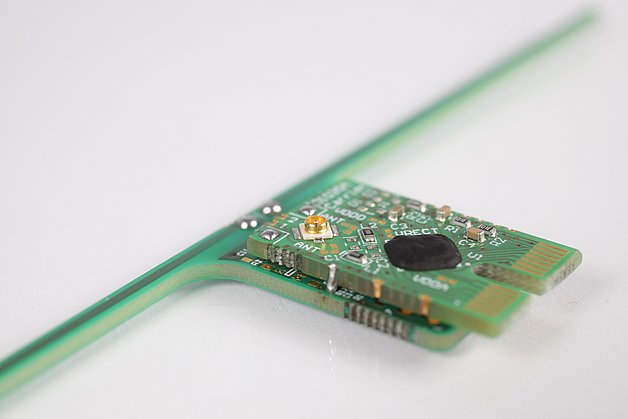
Project
NeAIxt
IMMS expands its UHF RFID sensor transponder ICs with innovative memory technology for smart sensor applications in logistics

Project
StorAIge
We are researching the use of ultra-low power embedded memories in wireless sensor front-end ICs for monitoring the condition of wind turbines and individual plants produced in greenhouses.

Project
EXPRESS
IMMS is working on autonomous modular sensor systems for cost-effective options for data collection in agriculture.
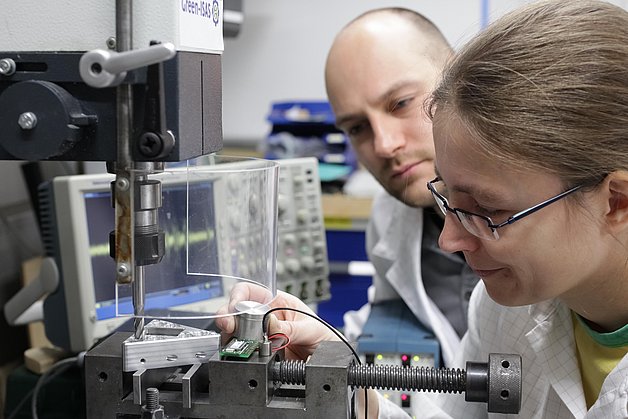
Project
Green-ISAS
Research on novel methods and technologies to enhance sensor-actuator systems to autonomous Industry 4.0 components
Suitability of Radio Communication Technologies for Smart Orchards Considering Seasonal Effects
Silvia Krug1,2. Falk Eisenreich1. Tino Hutschenreuther1.2025 IEEE International Workshop on Metrology for Agriculture and Forestry (MetroAgriFor), October 28-30, 2025, Bologna, Italy
1IMMS Institut für Mikroelektronik- und Mechatronik-Systeme gemeinnützige GmbH, Ehrenbergstraße 27, 98693 Ilmenau, Germany. 2Mid Sweden University, Sundsvall, Sweden.Demonstration einer automatisierten Bewässerungssteuerung für den Obstbau
Silvia Krug1.Thüringer Kirschentag 2025, 25. Juni 2025, Thüringer Landesamt für Landwirtschaft und Ländlichen Raum, Lehr- und Versuchszentrum Gartenbau (LVG), Erfurt
1IMMS Institut für Mikroelektronik- und Mechatronik-Systeme gemeinnützige GmbH, 98693 Ilmenau, Germany.High-Sensitive Demodulator with Built-in Negative Offset Comparator for Passive UHF RFID Tags
Rohit Kesharwani1. Andre Jäger1. Martin Grabmann. Georg Gläser. Eric Schäfer1.IEEE RFID-TA 2024, Forum for advancing RFID technology and practice, Daytona Beach, FL, USA, December 18–20, 2024
1IMMS Institut für Mikroelektronik- und Mechatronik-Systeme gemeinnützige GmbH, Ehrenbergstraße 27, 98693 Ilmenau, Germany.High-Sensitive Demodulator with Built-in Negative Offset Comparator for Passive UHF RFID Tags
Rohit Kesharwani1. Andre Jäger1. Martin Grabmann. Georg Gläser. Eric Schäfer1.2024 IEEE International Conference on RFID Technology and Applications (RFID-TA), Daytona Beach, FL, USA, 2024, pp. 109-112, DOI: doi.org/10.1109/RFID-TA64374.2024.10965142
1IMMS Institut für Mikroelektronik- und Mechatronik-Systeme gemeinnützige GmbH, Ehrenbergstraße 27, 98693 Ilmenau, Germany.


